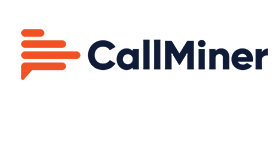Great customer service agents form the backbone of every successful call centre operation. However, enthusiasm, commitment and top-notch performance on the job are not cultivated in a vacuum.
Behind every great employee is an equally impressive training initiative that helps agents define goals, work strategically, and generally get more done.
Implementing a superb training protocol within your company can prove invaluable to its long-term growth and economic stability, while also encouraging employees to feel valued and understood.
Call centres depend on quality training programs more than most other businesses because representatives have the potential to directly influence consumer perceptions through their own performance on the job.
To ensure that your own call centre’s training program is effective, give the following tips and best practices a try.
1. Keep Things Practical
Describing the various principles of service within your company that each agent needs to uphold as they go about their jobs is undeniably important as part of the training process.
In addition, injecting as much practical advice and instruction into training as possible is guaranteed to better prepare new recruits for their work.
Maintaining a practical focus and perspective in your training protocol can be done in several ways. Here are a few helpful ideas:
Incorporate Real Practice Early On
A clear understanding of the procedures to follow for each call comes in handy, but it takes practice to implement them correctly.
By allowing new hires to tackle calls early on, with guided assistance, you can teach them to remain calm while under pressure with actual callers.
Try Simulations
Using simulations during training serves the same purpose as allowing hires to handle calls under supervision. It also eliminates the potential risks to consumer perception that errors made by new recruits can carry.
Give Recorded Call Analysis a Go
This tactic can prove particularly useful to experienced employees as a means for improving their skills over time.
Going over actual calls that you have recorded one-on-one or in a group setting helps agents to recognize key characteristics of good and bad performance alike in a relatable format.
Recognize Excellent Performance
Employees who demonstrate considerable effort to improve over time should be highlighted as examples to strive towards and from whom to learn.
Excellence on the job can manifest in multiple forms, from improvements in accuracy to higher customer service ratings. Try to discern between the various ways in which certain agents are succeeding and explain the behaviours driving such successes to the rest of your agents.
Provide Useful Feedback
Where mistakes are concerned, the best policy is one where constructive feedback is freely given.
In addition to pointing out the mistakes made by agents-in-training, you should also ensure that solutions to such problems are very clearly explained during training sessions as well.
Make Key Performance Indicators (KPIs) a Welcome Development Tool
For customer service agents to accurately assess their own performance on a regular basis, they need to know their own KPIs and how these relate to their specific skillsets.
Establish the habit of routinely comparing KPIs to actions early on to help your employees manage their own growth within their roles independently.
2. Teach Agents About the Business They Represent
Explaining the most relevant aspects of the business each of your agents will be representing is a given in any call centre training program. That said, delving deeper into more complex procedures and concepts that may concern callers can help improve performance across the board.
As agents gain insight into the structure of the business they stand for, they can better relate this to customers seeking guidance.
3. Encourage Emotional Competence in Customer Interactions
Defusing tense conversations and satisfying the chronically unsatisfiable are but two of the emotionally charged skills of every great call centre agent. Training agents to excel at their positions falls largely on teaching them to calmly coax positive results from negative situations.
Emotional intelligence can be trained most effectively by refocusing your agents’ attention on their own behaviours. Tone, verbal enthusiasm and clarity are key factors for every employee to consider in their dealings with callers as well as with other team members.
Use of recorded calls where similar issues were handled adeptly are particularly effective here.
4. Use a Buddy System
Social learning setups can drastically improve comprehension among new trainees.
In addition to helping new recruits grasp potentially confusing topics more readily, buddy systems can also prove an effective means of holding such fresh hires to higher standards from the outset without imposing too much managerial pressure on them.
5. Make Training About the Journey
Although your end goal of creating a productive and competent workforce may seem clear enough to calculate and plot out in full, there are many twists and turns on the road to such a result.
As such, training truly should never come to an end. The improvement process needs to be viewed through a lens of consistency above all else.
Allow Feedback to Flow Upstream
A good way to promote continuous development among your staff members is to provide avenues for them to contribute constructive feedback on your company’s policies as well as their own employee experiences.
The insights you gain from your own workforce can prove invaluable in improving performance and agent satisfaction significantly.
This blog post has been re-published by kind permission of CallMiner – View the Original Article
For more information about CallMiner - visit the CallMiner Website
Call Centre Helper is not responsible for the content of these guest blog posts. The opinions expressed in this article are those of the author, and do not necessarily reflect those of Call Centre Helper.
Author: CallMiner
Published On: 13th Feb 2020 - Last modified: 18th Feb 2020
Read more about - Guest Blogs, CallMiner






 CallMiner, the leader in CX automation, combines AI agents and human expertise to optimise interactions, cut costs, and boost engagement. Advanced analytics transform conversations into intelligence that drives improvements and automation for global brands.
CallMiner, the leader in CX automation, combines AI agents and human expertise to optimise interactions, cut costs, and boost engagement. Advanced analytics transform conversations into intelligence that drives improvements and automation for global brands. 
































